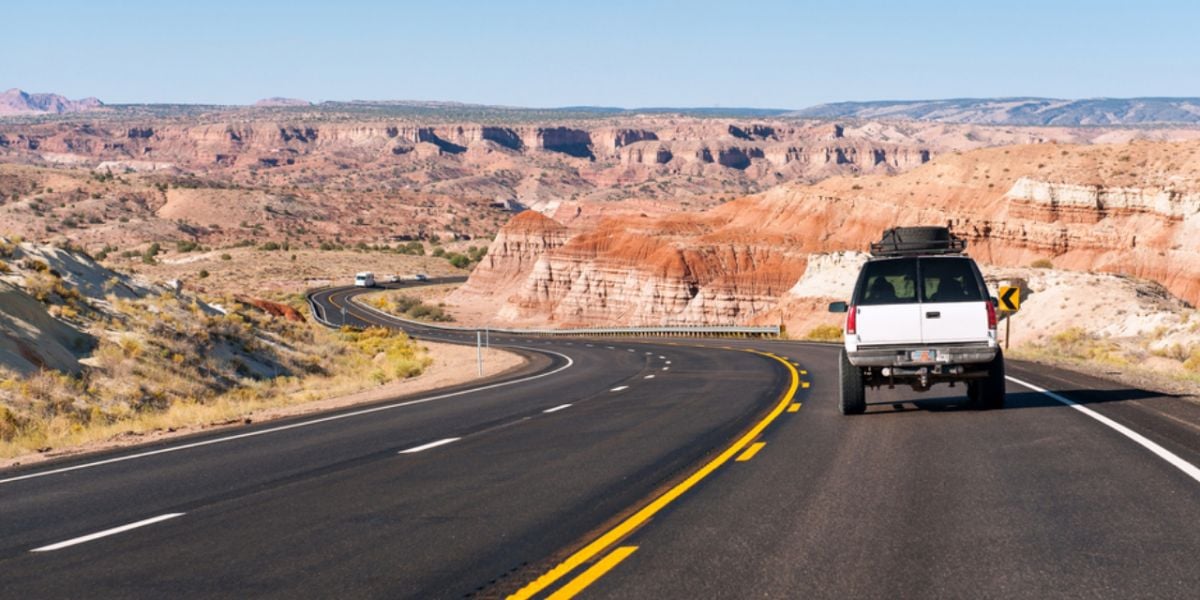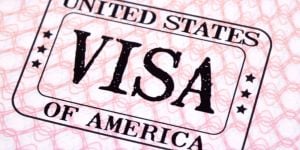
Driving is the most common method of getting around the United States. Unless you live in a city with efficient public transport, such as New York City or Boston, it's likely you're going to need a car to get around. This article explains the basic rules and requirements for driving in the US.
If you're visiting the US temporarily, you can usually drive with a valid license from your home country, which can be further backed up by having an an International Driving Permit (IDP). Once you become a resident of a US state, you are required to obtain a local driver's license, even if your IDP is still valid. Some countries have reciprocal agreements that allow you to exchange your license without a driving test, but these vary by state. Always check with the Department of Motor Vehicles (DMV) in your state of residence to confirm what you need to do.
Important:
In every state, there is a Department of Motor Vehicles (DMV), and therefore, each state has its own laws governing car registration, insurance, and licensure. It's important to contact the transportation agency in the state where you'll be living for the exact laws and regulations. Note that if you have a valid driver's license, insurance, and registration in your resident state, you may drive legally in all states.
Exchanging a foreign driving license in the US
Nationals from Canada, France, Germany, Mexico, South Korea, Taiwan, and all US-held territories may convert their license to a US driver's license in their resident state without going through the driver's test. However, the exact list of eligible countries varies by state—for example, Virginia and Texas have slightly different lists.
The process for exchanging a foreign license varies state by state, so check in with your local DMV. Most states require an application in person, along with proof of your valid national driver's license from your home country and a small fee. Once these steps are completed, a temporary license will be issued until your permanent license is received in the mail. Check with the DMV in your resident state for the exact procedures and required documents.
Important:
If you plan to live in the U.S. long-term, it is sensible to apply for a US driver's license. Most states require new residents to obtain a local license within 30 to 90 days of establishing residency, even if you hold a valid license from another country.
How to get a US driver's license as a foreigner
Obtaining a US driver's license is done by filling out an application, taking a theoretical written exam, a behind-the-wheel driving test, and paying all the associated fees. Visit the nearest DMV office in your resident state to apply for your US driver's license.
Though each state is different, most require a Social Security Number, a passport, proof of residence in that state (such as a bill or mail addressed to you), and your visa or Green Card to prove legal presence in the country.
Once the forms are completed, you will be given a traffic manual to prepare for the written test. The theoretical test is a multiple-choice test that must be passed before moving on to the practical exam. Most DMVs offer both the manual and the actual exam in multiple languages. Behind-the-wheel driving tests are done with your vehicle, which must be adequately insured. Once you pass the driving test, you will be issued a temporary driver's license until your permanent license is received in the mail.
Do I need an IDP to drive in the US?
An International Driving Permit (IDP) is basically just a translation of your home country's license and is not a license on its own. It comes in the form of a small booklet with your license details contained within it, and it is valid for one year from its date of issue. Because many foreign licenses are accepted for short-term driving applications, it is not always necessary to go through the process and cost of applying for an IDP.
However, if your license is in a non-Latin script (e.g., Japanese, Arabic, Cyrillic), an IDP or official translation is often required, especially by rental companies.
As mentioned above, visitors can drive with a foreign license and IDP (if applicable) for a limited time, but once you become a resident of a U.S. state, most states require you to get a local license within 30–90 days, regardless of whether your IDP is still valid.
Renting a car in the US
Renting a car in the US is a good option for getting around, especially if you don't want to bother with purchasing one.
The United States has one of the biggest car rental industries in the world, so you won't be strapped for choice. Almost every airport in the country has a free shuttle bus service to take you to the nearest rental car lot. However, it is always best to be prepared and do some research in advance to decide what kind of car you want and which rental company you want to use. The biggest car rental companies in the US include Enterprise, Hertz, Alamo, Avis Car Rental, Budget Rent-A-Car and Dollar Rent-A-Car.
To rent a car in the United States, you need to be over the age of 21. Some companies, like Hertz, allow rentals from age 20 in most states, and 18 in Michigan and New York. However, some car rental companies may charge you the Young Renter Fee if you are under the age of 25. You must have a valid driver's license from your home country and an international driver's license.
In most cases, you must have a credit card to rent a car in the US. Your credit card is not only used as a payment method — it's also used to verify identity. Thus, even if you do make an offer to pay in cash, the chances are that you will be denied.
Car rental rates vary a lot. How much you will need to pay depends on the type of car you select, what insurance you get with it, and several other factors. On average, car rental in the United States costs around USD 50 to USD 80 daily. Note that even if you are renting a car only for one day, you need to have sufficient funds on your credit card for a deposit.
In many cases, the rental company will hold your deposit amount until the car is returned.
Renting a car can also be handy in big cities, where you mostly rely on public transportation. In this case, it would make for a convenient way to arrange a weekend getaway.
Car-sharing in the US
Carsharing is an excellent transportation option for expats, especially if you are just finding your feet in a new city. This service allows expats to access vehicles on demand, eliminating the need for car ownership. By subscribing to platforms like Zipcar, Enterprise CarShare, or Getaround, you can book vehicles for short periods. It's also much cheaper than a traditional rental car and doesn't involve visiting a car rental office location, which is often by the airport or in other far-flung locations. Expats can enjoy exploring their surroundings without worrying about maintenance, insurance, or parking. Additionally, the convenience of mobile apps streamlines reservations and vehicle access, simplifying the process even further—sometimes, you can take care of the entire rental process just using a cellphone.
Buying a car in the US
The paperwork and requirements for buying a car as an expat in the United States may vary from state to state. We strongly suggest that you check the most recent related rules in the state where you live before proceeding with the purchase.
When purchasing a vehicle in the USA, there are several considerations to keep in mind:
- Driver's license and testing: While a valid driver's license might not be necessary to buy a car in many states, it's required to insure and test drive the vehicle. Regulations vary, so ensure compliance with state-specific rules.
- Choosing the right vehicle: Determine the type of car you need by listing desired features and considering factors like budget, car size, usage (city or countryside), and fuel economy.
- Budgeting: Account for various costs beyond the car's purchase price, including insurance, registration, maintenance, inspections, parking, and potential garage fees.
- Financing considerations: To secure car financing, a solid US credit history and a good credit score are typically required. Newcomers might face challenges, but options like expat-oriented lending services can be explored.
- Buying options: Decide between buying from a dealership or a private seller. Private sellers might offer better deals, but assess the vehicle's condition thoroughly or seek a professional inspection. Dealerships provide legal protection under state and federal laws, including warranties for new cars and roadworthiness certificates for used ones.
Driving regulations in the US
Going on a road trip, driving to a different neighborhood in your city, or embarking on a cross-country adventure are all great ways to explore the country. Before doing so, ensure you know and adhere to all state driving regulations. Some of the bases of road rules for driving in the United States include the following:
- All passengers in all vehicles must wear seat belts at all times;
- Children must be in safety seats or booster seats;
- Children in baby seats are not allowed in the front seat facing forward because of the risks associated with airbags;
- Some interstates or freeways feature high-occupancy lanes (HOV). These are marked with a sign and can only be used by cars with over two people;
- If stopped by the police, you need to pull over to the side of the road, turn the car off, and roll down your window. Do not exit your vehicle unless instructed to do so. Make sure you have your driver's license and car insurance handy.
Speed limits in the US
In the United States, there are no countrywide speed limits, so if you are traveling between states, it is important to pay attention to signs and how fast other drivers are driving. Note that many areas are monitored by a radar, and if you are not careful, you may be mailed a speeding ticket. Inside the city, speed limits are typically set at 25–30 mph. Maximum speed limits for interstates and freeways vary from 65 mph to 80 mph. Speed limits in school zones are from 10 mph to 25 mph.
Useful links:
List of motor vehicle services by state
Information for foreign nationals driving in the US
We do our best to provide accurate and up to date information. However, if you have noticed any inaccuracies in this article, please let us know in the comments section below.








